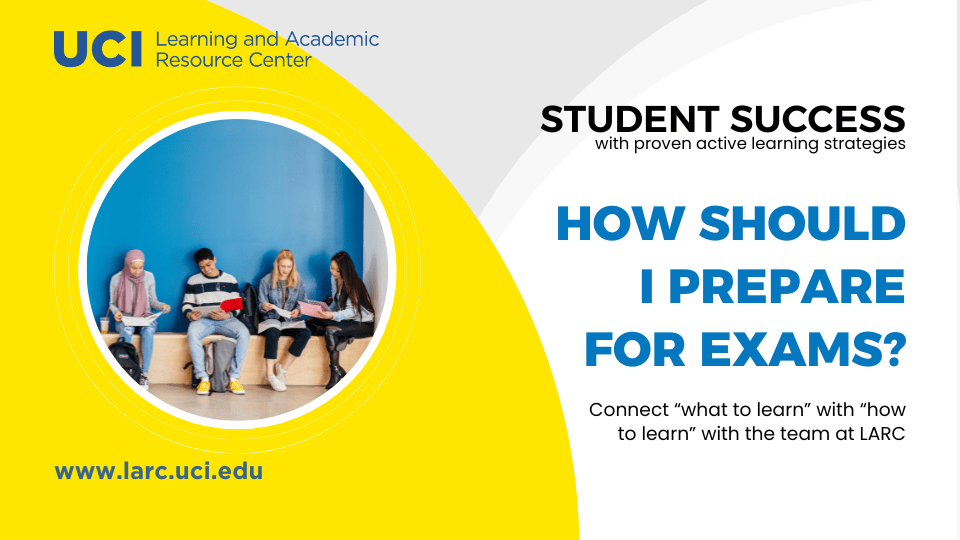New students are often surprised by the format and difficulty of exams at UCI. This is because learning at a college level means being able to apply knowledge. Experts in their fields are showing you how to think like an expert! This goes a step above memorizing or understanding information. You’ll still need to “know stuff,” but exams will require you to “use stuff.” That takes lots of practice. To help you prepare for your upcoming exams, here are some of the things that you can try:
- Remember that foundation is just the first step: Think of the vocabulary, concepts, and formulas that you’ve learned in your course as foundation information. Memorizing and studying this base information is important, but this is just a starting point—there’s still more to do!
- Level-up through practice: You may be tempted to skip lower-weighted homework and lengthy reading assignments, but these types of assignments are excellent practice for exams. Not only do they deepen your comprehension, but they also test your preparedness for more complex exam questions.
- Quiz your memory: Can you explain what you’ve learned without looking at your notes? If not, you may not truly understand it. Studies show that retrieval, or actively recalling what you’ve read or heard in class from memory, enhances comprehension and long-term learning. If you’ve ever used flashcards, you were practicing a basic version of retrieval. This method may feel harder than reviewing your notes, but that’s because your brain is doing more work and that’s what makes it stick! To learn more about retrieval, check out this video.
- Practice applying course concepts: Solving different, more complex problems that require foundation information will help you prepare for exam questions. This is where you level up from “knowing stuff” to “using stuff.” Use the practice questions in your textbook and ask your teaching team for practice test items to get the hang of applying course concepts.
- Reconsider the cram: Cramming is stressful AND robs you of deep learning and long-term memory. Instead, it’s much more effective to spread out your practice and circle back on older content to check your knowledge. This study strategy is called spacing. To learn more about spacing, check out this video.
Need some extra help getting ready for exams? The team at LARC is happy to assist! Meet with one of our academic coaches one-on-one, sign up for a LARC tutorial, or check out our best learning tips. For more study strategies, check out some of the resources The Learning Scientists has to offer.
Please don’t hesitate to contact us for additional information.

